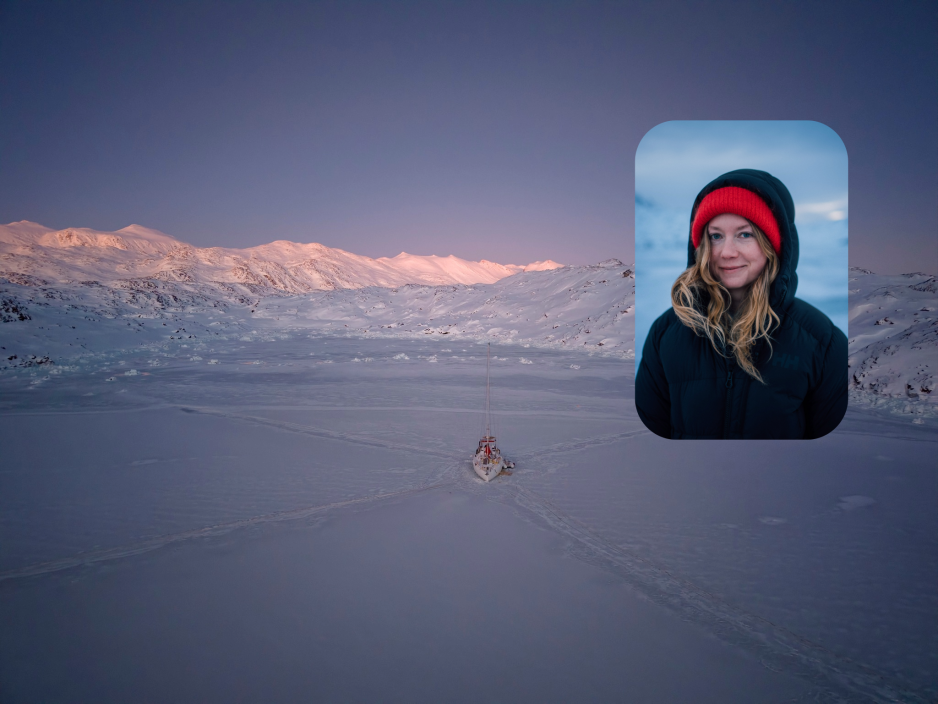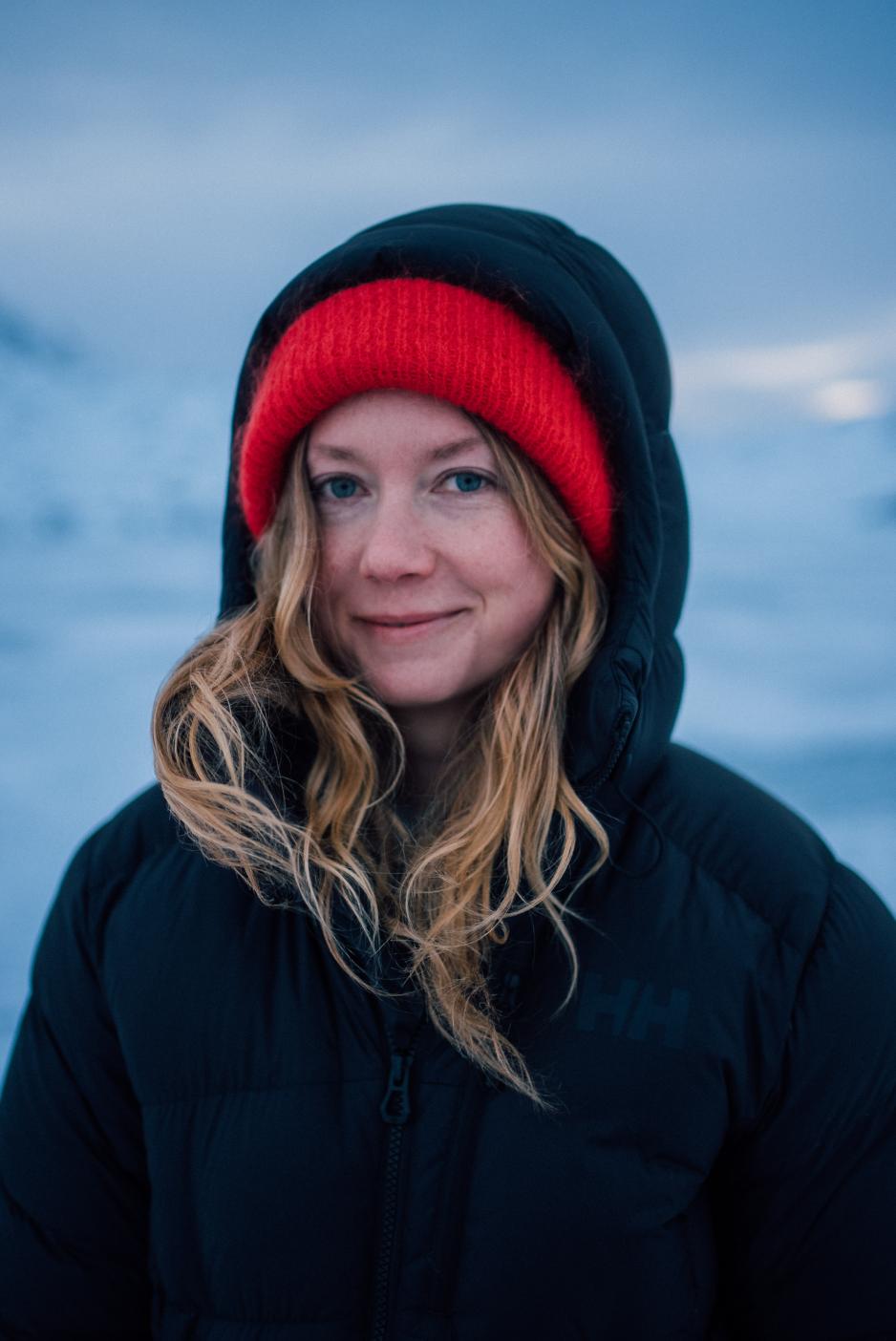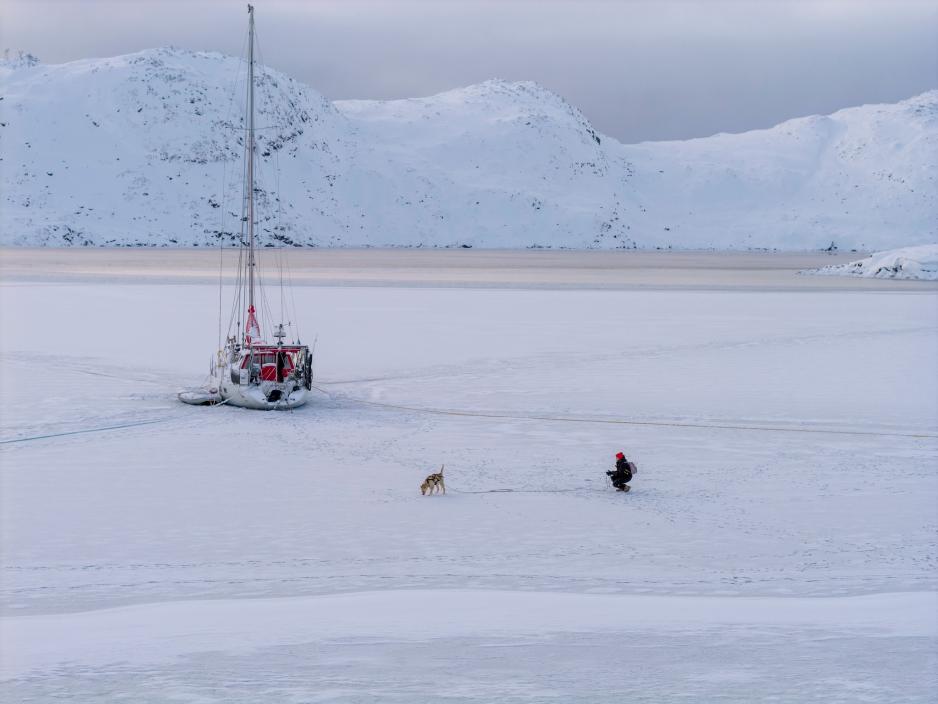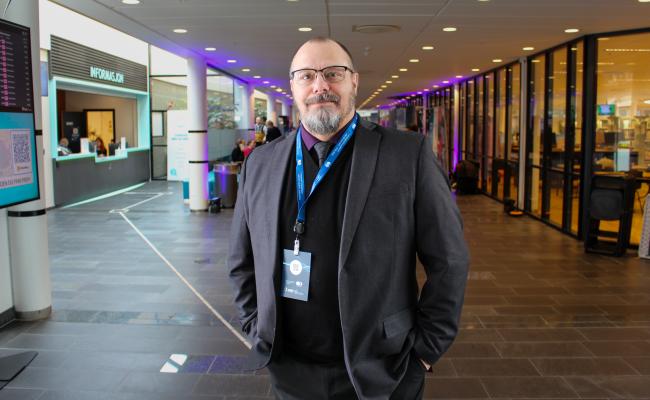The Arctic Scientist Profiles: Sohvi (34) Overwinters in the Greenlandic Ice: “The Sea Ice Has Agency of Its Own”

Researcher Sohvi Kangasluoma is working on a research project that explores the agency of more-than-human actors. Her focus is on the sea ice, and she has a quite immersive approach to her work. (Portrait by Mikko-Pekka Karlin, landscape photo by Juho Karhu)
Researcher Sohvi Kangasluoma (34) lives in a sailboat while journeying across the Arctic, researching the sea ice that impacts and defines the very lives of the Arctic people, including her own. She emphasizes the agency of the ice, stating, "We are not alone here, the sea ice is very much alive and has agency of its own."
"Sea ice is anything but passive and dead, it is very much alive, and it has agency of its own," says Researcher Sohvi Kangasluoma.

Sohvi Kangasluoma, Postdoctoral Researcher at the Arctic Centre, University of Lapland. (Photo: Mikko-Pekka Karlin)
She is from Finland, where she studied international relations and political science at the University of Lapland. Her time at the university incited a strong interest in the Arctic, she says, and she went on to become a doctoral student at the University of Helsinki, where she focused on the intersections of the fossil fuel industry, gender, environment, and human security in the Arctic.
Now, she is back at the University of Lapland, working as a Postdoctoral Researcher at the Arctic Centre. Yet, Sohvi's workdays are not quite like those of most researchers. She works from her sailboat, currently overwintering in Greenland, while exploring the agency of sea ice.
Utopian research
She has lived on the boat with her partner for four to five years, stating that her lifestyle has influenced her research life.
She is currently working on a research project titled Rethinking International Relations in an Era of the Planetocene: Case Arctic Ocean Up to 2050.
"We are trying to create the concept of Planetocene. In contrast to the Anthropocene, the age of man, the Planetocene would be the age of the planet," she says, and continues:
"The idea is that in the Planetocene, the well-being of the planet would be in the center and everything would be organized according to that."
She acknowledges that this is a utopian concept, but that such ideas are necessary in the era of the climate crisis:
"We need these utopian concepts to create tools for rethinking human-nature relations."

Last summer, Sohvi and her partner transited the Northwest Passage, becoming the 410th boat to complete the journey. (Photo: Juho Karhu)
Agency of sea ice
Sohvi focuses on the agency of the more-than-human, particularly the sea ice.
"It is extremely important, especially with the climate crisis, biodiversity loss, and so on, that we acknowledge that we are not here alone," explains Sohvi.
"We tend to have this very anthropocentric way of thinking. Humans need a shift in knowledge. Humans are not alone here; there are so many other actors as well," she says, and adds:
"This is, of course, already present in many Indigenous ontologies and ways of life, which we need to start listening to."
She says that all the geopolitical attention toward the Arctic, the political mayhem, is based on the melting of the sea ice, making the region more open and accessible. However, she believes the sea ice is not considered a key actor in this discussion.
"It is approached as something that just is and melts. But it is anything but a passive and dead thing; it is very much alive, and it has agency of its own," Sohvi explains.
You need to be in the ice and see the ice to truly understand it.
Transiting the Northwest Passage
Last summer, Sohvi and her partner transited the Northwest Passage, starting in Alaska and ending up in Greenland, where they are currently spending the winter. They were the 410th boat to complete the voyage in the history of recorded transits.
Traveling through this passage in a sailboat, the researcher could experience the tangible agency of the sea ice firsthand, how it defined every move made throughout the journey.
"When you start to look at the agency of ice in a passage such as this, it becomes so self-evident. The ice is the actor that defines all activity there - whether it is possible to sail, how, when, and so on," she says, and continues:
"Ice doesn't always act the way you would assume. It does not develop linearly."
Ice has the potential to change and surprise, she says, referring to a recent study that shows that with increasing temperatures, multi-year ice is shifting from the northern parts to the southern parts, creating choke points for the Northwest Passage, thus actually reducing the shipping season length at the Northwest Passage.
We need to break free from the binary of human and nature.
An immersive learning process
Sohvi emphasizes that conducting her research from a sailboat in the Arctic is an immersive learning process and that she does not believe that she could have learned to know the sea ice as well as she has if it had not been for her lifestyle. Studying the sea ice through interviews and satellite images would not have provided her with the same personal insight into the ice.
"My personal life has shaped the research, as has my research shaped my personal life. I am not here solely because of the research – this is my life and my partner's life as well. And living like this has taught me a lot about the ice. It changes every day."
"I think the research would be quite different if we did not live like we do," she states.
While exploring the agency of sea ice, Sohvi has allowed the sea ice to define and impact her life and personal security, employing an auto-ethnographic approach that enables the researcher to connect their own personal experiences to the broader research being conducted.
The research is conducted through methods that include interviews with locals, analyses of legal documents, and field diaries detailing the impact of the ice on the sailboat. Thus, her personal experiences are intertwined with those of local people who live permanently with the ice.

Sohvi and her dog outside of the boat, which is currently frozen into the ice in Greenland. (Photo: Juho Karhu)
Gender in the Arctic
In her PhD, Sohvi focused on the role of gender within Arctic extractivism. Still, feminist and other critical theories work as a backdrop and guide in her research work. Many of the researchers she reads and draws from have a feminist mindset in their work, which includes the notion that all research is always situated, and acknowledging that fact is significant, she explains.
Outside of her research, just as a woman aboard a sailboat in the harsh environment of the Arctic, she regularly encounters situations where her competence is questioned due to her gender.
"It is especially apparent in the docks and boatyards. People address my partner and not me, assuming I don't know anything about the boat that I also own," she says, adding that men often doubt her ability to do maintenance and upgrades on the boat.
A need for action
The main goal of the research project is to bring new ideas to the disciplines and new ways of thinking about the ocean in general, the researcher explains.
She uses the Central Arctic Ocean Fisheries Agreement as an example:
"How could we reorganize these types of marine governance instruments, which already have a lot of potential yet which are still very human-centric and emerge from land-based knowledge, from a post-anthropocentric approach where the fish itself would be the actor. How can we reorganize these kinds of Arctic marine governance instruments if they are not solely from the human perspective?"
"We have so much data about the effect of climate change and the loss of biodiversity. We know it's not going well. We need action, and thus, we need models for new ways of thinking."
"We need to imagine new solutions to reorganize the whole human-nature relations and break free from the binary of human and nature," the researcher concludes.


